In the fast-moving world of retail, it’s really important to meet customer demands quickly to stay competitive. Retailers need to understand what their customers want and respond faster than before. But what technology allows retailers to better respond to consumers? This detailed guide will explain the latest technologies that help retailers make consumers happy, improve their business, and stay ahead in a market that’s always changing. These technologies not only make things run smoothly but also make shopping more personal to meet what today’s consumers expect.
Introduction: Understanding the Changing Needs of Consumers
In the past, shopping was limited to physical stores, and it was easier for retailers to meet consumer expectations. But with the growth of online shopping and new digital tools, consumers now expect more than just a product—they want convenience, fast service, and personalized experiences. To keep up, retailers have had to change how they work, and technology is a big part of that.
The question “What technology allows retailers to better respond to consumers?” shows how technology helps stores understand, predict, and meet the needs of their customers in today’s fast-moving retail world.
Let’s explore the tools and strategies that are transforming the retail industry.
Customer Relationship Management (CRM) Systems
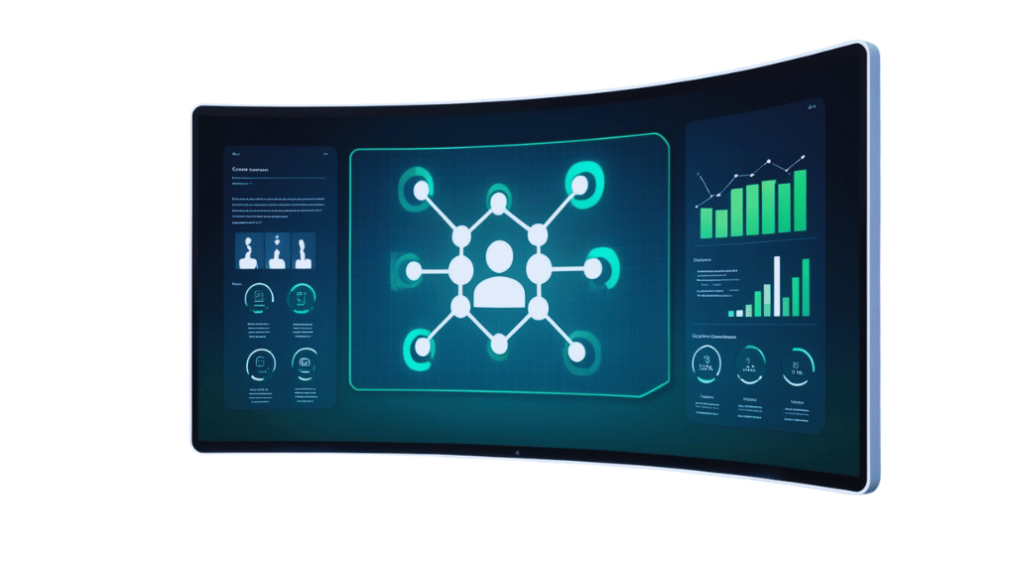
A key technology that allows retailers to respond better to consumers is Customer Relationship Management (CRM) systems. CRM tools help businesses keep track of customer interactions, buying habits, and store valuable data for future communication.
How CRM Systems Benefit Retailers
- Personalized Customer Interactions: CRMs help businesses create highly personalized offers, emails, and promotions by tracking what customers like, what they buy, and what they browse. This personalized approach makes sure each customer receives information that is relevant to them, which helps enhance sales and build loyalty.
- Effective Communication: CRM systems provide detailed records of customer interactions, whether through email, chat, or social media. It helps businesses respond to consumer questions faster and offer a more consistent service experience.
- Customer Segmentation: Retailers can use CRM data to group customers into segments based on age, what they’ve bought before, and their preferences. It helps businesses send targeted messages and create marketing campaigns that connect with each group of customers.
Key CRM Features for Retailers
- Managing customer contacts and leads
- Tracking what customers buy and how they shop
- Marketing automation tools
- Email and SMS marketing campaigns
- Data analysis for customer insights
Artificial Intelligence (AI) and Machine Learning (ML)

Artificial Intelligence (AI) and Machine Learning (ML) are transforming the retail industry by helping them understand what consumers want. These technologies help retailers to predict trends, make quick decisions, and offer personalized shopping experiences to each customer.
How AI and ML Increases Customer Responses
- Personalized Shopping Experiences: AI can analyze what customers have bought before or searched for to suggest products they might like. It helps retailers recommend items that fit each person’s taste, making shopping easier and more personal.
- Chatbots and Virtual Assistants: Retailers now use AI-powered chatbots and virtual assistants to offer instant customer support. These tools answer customer questions, solve problems, and help shoppers quickly, making their shopping experience smooth and easy.
- Predictive Analytics: ML algorithms can analyze large amounts of data to predict what products customers will want, how they will shop, and what trends are coming. It helps retailers to adjust their stock and marketing strategies accordingly to meet future demand.
Key AI and ML Applications in Retail
- Personalized product recommendations
- Chatbots for customer service and sales
- Predicting inventory needs and product demand
- Voice assistants for shopping
- Analyzing customer opinions and feedback
Big Data and Analytics
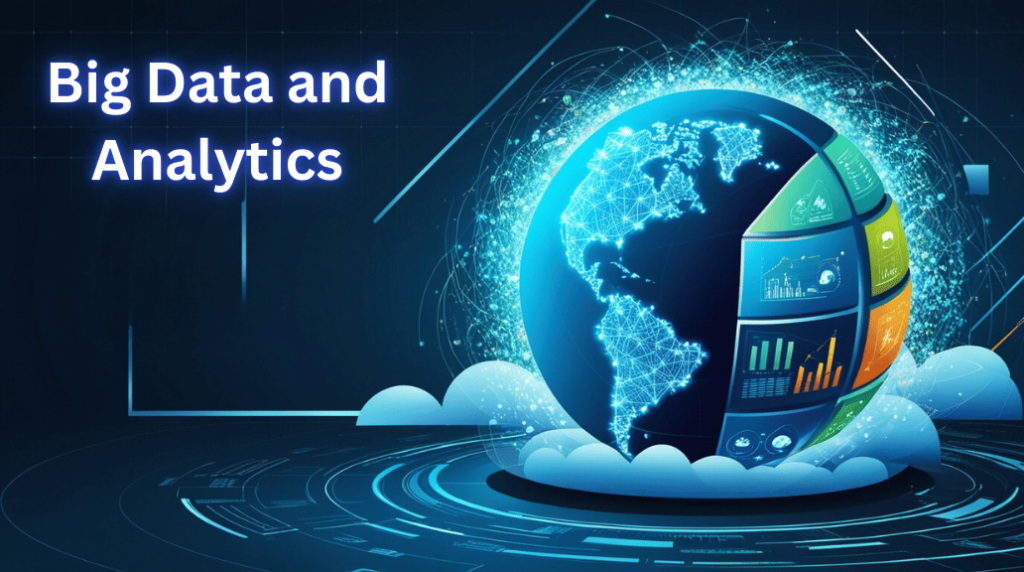
Big data technologies help retailers to track customer behavior and quickly analyze large amounts of data. By using this data, retailers can make smarter decisions about stock, prices, and marketing strategies. These insights help businesses to understand what customers want and adjust their strategies accordingly.
How Big Data Helps Retailers Respond to Consumers
- Real-Time Consumer Insights: Retailers can use big data to track what customers do on their website or app instantly. It helps businesses to identify trends, understand shopping patterns, and respond immediately to consumer demands.
- Targeted Marketing Campaigns: Big data helps retailers divide customers into groups based on location, shopping history, and interests. This segmentation makes it easier for businesses to target specific groups with personalized promotions, offers, and discounts.
- Improved Inventory Management: By analyzing sales patterns and trends, retailers can predict which products will be in demand and adjust their stock accordingly. It reduces the risk of overstocking or understocking, making sure that consumers can always find the products they want.
Benefits of Big Data Analytics for Retailers
- Better understanding of what customers want and how they shop
- Smarter decisions about pricing, inventory, and promotions
- Personalized marketing based on customer data
- Tracking consumer feedback instantly
- Managing stock and predicting demand more efficiently
Omnichannel Retail Technology
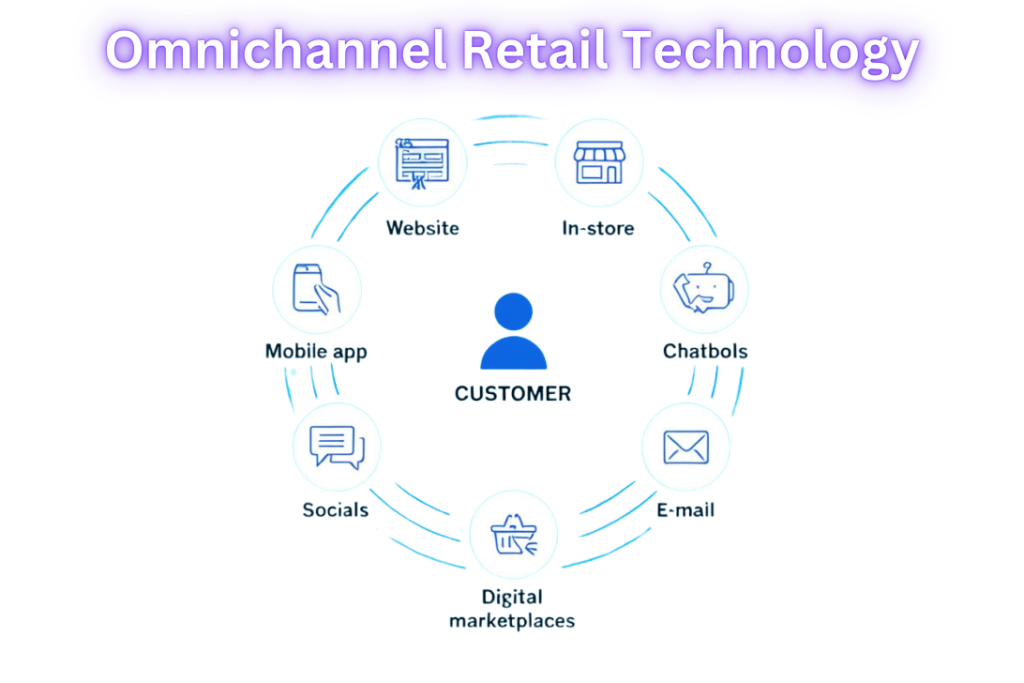
As consumers shop on multiple platforms, omnichannel technology helps retailers offer a smooth and connected shopping experience. It ensures consumers receive the same experience whether shopping online, in-store, or on a mobile app.
How Omnichannel Technology Increases Retailer-Consumer Interactions
- Consistency Across Channels: Omnichannel technology helps retailers maintain a consistent brand experience across all shopping platforms. Whether customers use a mobile app, visit a website, or shop in-store, they receive the same promotions, product availability, and pricing.
- Flexibility and Convenience: Omnichannel systems allow retailers to offer services like buy-online-pick-up-in-store (BOPIS) and curbside pickup. These options allow customers to shop online and pick up their orders at a nearby store.
- Real-Time Inventory Updates: Omnichannel technology helps retailers to keep track of inventory across all platforms. It allows customers to see if a product is available before they buy, whether they’re shopping online or in-store.
Key Omnichannel Features for Retailers
- Integration of online and in-store shopping experiences
- Real-time updates on product availability
- Personalized customer profiles across all shopping platforms
- Tracking and managing orders from all platforms
- Mobile apps integrated with in-store shopping
Automation and AI-driven Chatbots

Automation and AI-driven chatbots are important technologies that help retailers to respond quickly and efficiently to customer questions and problems. Automation can handle multiple tasks like order processing and customer questions, while chatbots provide instant support to consumers.
How Automation and Chatbots Improve Customer Experience
- Faster Customer Support: AI-powered chatbots can instantly answer common customer questions and solve problems, making the overall shopping experience faster and better.
- Order Processing and Fulfillment: Automation tools make order processing faster and more accurate, reducing mistakes and speeding up delivery. Automated systems update inventory in real-time and make sure orders are fulfilled quickly.
- Personalized Interactions: Chatbots can use customer data to suggest products and promotions that match their needs. They can also check in after a purchase, asking for feedback or recommending related products.
Benefits of Automation and Chatbots for Retailers
- 24/7 customer support
- Faster response to customer questions
- Automated order processing and inventory updates
- Reduced labor costs
- Personalized communication with customers
Mobile Technology and Retail Apps
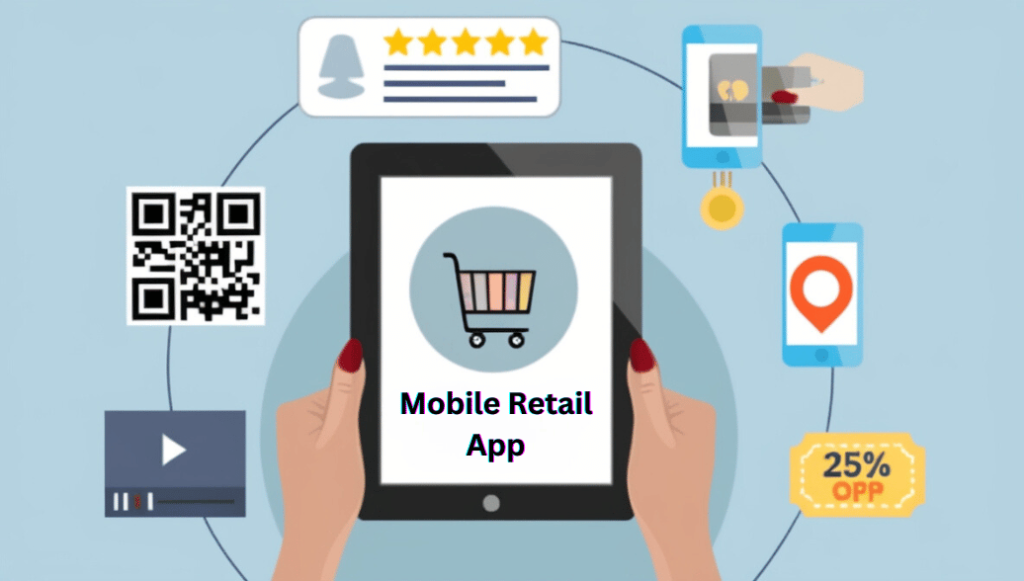
As more people use mobile devices, mobile technology has become a game-changer for retailers. Mobile apps, location services, and mobile payments help businesses to connect with consumers wherever they are.
How Mobile Technology Supports Retailers’ Response to Consumers
- Mobile Shopping Apps: Retailers can create mobile apps that allow consumers to easily browse products, make purchases, and get special offers.
- Location-Based Marketing: Retailers use GPS technology to send targeted promotions to consumers when they are near a store, encouraging them to visit and increase sales.
- Smooth Mobile Payments: Many consumers prefer the convenience of mobile payments. Retailers that accept mobile payment options like Apple Pay, Google Pay, and digital wallets make the checkout process quick and secure.
Key Benefits of Mobile Technology for Retailers
- Better customer engagement through mobile apps
- More sales with location-based offers
- Faster and more secure payment options
- Convenience for customers on the go
- Personalized in-app shopping experiences
Social Media and Influencer Marketing
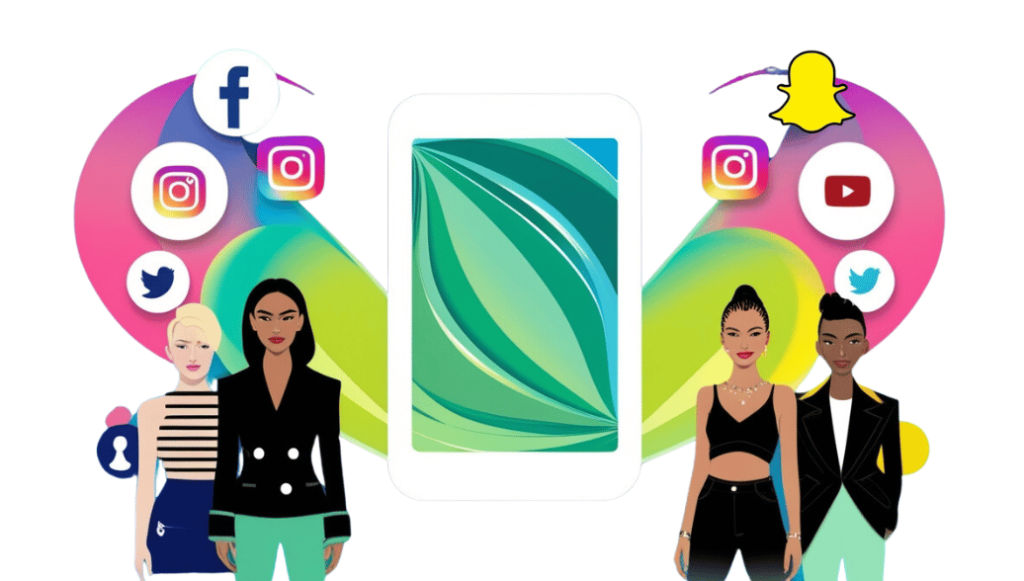
Social media platforms and influencer marketing are important in how retailers connect with and respond to consumers. These technologies help businesses reach more audiences and build stronger relationships with customers.
How Social Media and Influencer Marketing Help Retailers Respond
- Direct Consumer Engagement: Retailers use social media to communicate with consumers in real-time. Whether it’s answering questions, solving problems, or sharing promotions, Social media platforms provide instant communication.
- Influencer Partnerships: Influencers with large social media followings help retailers reach new audiences. By promoting products, influencers bring more visitors to retail websites and help make the brand more well-known.
- Social Listening: Retailers use social listening tools to see what people are saying about their products online. It helps them better understand their customers, make changes to their strategies, and keep customers happy.
Key Benefits of Social Media for Retailers
- Direct communication with consumers
- Increased brand visibility and trust through influencers
- Quickly knowing how customers feel and what they think.
- Keeping customers happy and loyal by staying connected with them
Conclusion
The question of what technology allows retailers to better respond to consumers is increasingly answered by technologies like AI, CRM systems, Big Data, and mobile apps. By using these technologies, retailers can increase the shopping experience, respond faster to customer needs, and provide personalized services that keep consumers coming back.
As the retail industry continues to change, keeping up with these technologies will be key to maintaining customer satisfaction, running the business smoothly, and staying ahead of competitors.
Implementing these innovations will help retailers to not only meet but exceed the expectations of the modern consumer and achieve long-term success in today’s digital world.


Оборудование для конференц зала: качественные решения для вашего бизнеса
оснащение конференц зала https://oborudovaniye-konferents-zala1.ru .
Оборудование для актового зала: проекторы, акустика и освещение на высшем уровне
оборудование для актового зала школы купить http://www.oborudovaniye-aktovyh-zalov1.ru/ .
Оснащение мультимедийным оборудованием: современные технологии для вашего бизнеса
оснащение мультимедийным оборудованием http://osnashcheniye-multimediynym-oborudovaniyem1.ru/ .
Экран для проектора: лучшее сочетание цены и качества
экран проекционный proekcionnye-ehkrany1.ru .
Современные технологии для оснащения переговорных комнат
оборудование переговорных oborudovaniye-peregovornykh-komnat1.ru .
Выгодный лизинг коммерческого автотранспорта для эффективного бизнеса
взять в лизинг спецтехнику http://www.lizing-avto1.ru/specztehnika/ .
Оснащение конференц залов: профессиональные решения под ключ
оснащение конференц залов оборудованием https://www.osnascheniye-konferents-zalov1.ru/ .
Деревянные дома под ключ с гарантией экологической чистоты материалов
деревянные дома под ключ http://derevyannye-doma-pod-klyuch1.ru/ .
Komfortowy parking przy lotnisku Chopina – idealny start dla kazdej podrozy
tani parking przy lotnisku parking-chopin-48.pl .
Услуги сантехника по доступным ценам в вашем районе
услуги сантехника https://www.1remont-santehniki.ru/ .
Succesvol afstuderen met scriptie laten schrijven door specialisten
verslag laten schrijven http://www.scriptielaten-schrijven.nl .
Построим дом, который станет вашим любимым местом: уютный каркасный проект
каркасные дома санкт петербург http://www.karkasnye-doma-pod-kluch0.ru .
The ultimate list of affiliate programs to help you achieve financial freedom
casino partners http://www.affbetx.com .
Продажа автомобилей в Новосибирске: купить машину быстро и безопасно
продажа авто в новосибирске новые в автосалонах auto-nsksity.ru .
Всё для вашего авто: авторазборка с лучшими ценами на рынке
разборка авто москва avtorzborka-moskva-1.ru .
Воплощаем мечты в реальность: каркасный дом под ключ по доступной цене
каркасный дом санкт петербург https://www.karkasnye-doma-pod-kluch1.ru .
Построим ваш каркасный дом под ключ по индивидуальному проекту
каркасные дома под ключ в спб цены каркасные дома под ключ в спб цены .
Строительство каркасных домов в Петербурге с использованием инновационных материалов
строительство каркасных домов в спб https://www.spb-karkasnye-doma-pod-kluch0.ru .
Луксозни почивки в Гран Канария: оферти, които ще ви оставят без думи
гран канария забележителности gran-kanaria.com .
Лечение сложных психических расстройств в психиатрической клинике Петербурга
психиатрическая клиника в санкт петербурге психиатрическая клиника в санкт петербурге .
Доставка алкоголя ночью в вашем городе: быстро, качественно и удобно
доставка алкоголя ночью https://www.dostavka-alcogolya-nochyu-shop.ru/ .
Услуги психиатра в СПб: помощь в сложных ситуациях
психиатрический стационар спб psihiatricheskaya-klinika-spb-0.ru .
Контрактные двигатели для иномарок из Японии и Европы с гарантией
контрактные двигателя http://www.kontraktnye-dvigateli-moskva-1.ru/ .
москитная сетка купить
https://moskitka-proizvodstvo.ru/
Фронтальный погрузчик с лучшими техническими характеристиками — выбирайте у нас!
куплю фронтальный погрузчик китай https://xn—-7sbkqfclcqchgmgkx0ae6eudta.xn--p1ai .
Почему выгодно покупать бу автозапчасти: экономия и качество в одном месте
авто запчасти бу zapchasti-bu-moskva-1.ru .
Круглосуточные услуги сантехника: оперативное решение любых проблем с сантехникой
сантехник спб срочно http://sanmontazh1.ru/ .
Ремонт душевых кабин и гидромассажных систем: услуги сантехника
сантехник https://www.24santehnick-1.ru .
Наркологическая клиника: эффективное лечение алкогольной и наркотической зависимости
наркологическая клиника сайт https://www.platnaya-narkologicheskaya-klinika.ru .
Игровой портал Mostbet: развлечения, которые приносят доход
most bet most bet .
Доставка алкоголя на дом круглосуточно: удобный сервис и большой выбор напитков для любого случая
доставка алкоголя на дом круглосуточно https://www.dostavka-alcogolya-nochyu-world.ru/ .
Алкоголь с доставкой через сайт: удобный способ получить ваши любимые напитки
доставка алкоголя ночью https://dostavka-alcogolya-nochyu-club.ru/ .
Услуги сантехника для бизнеса: оперативное обслуживание ресторанов и офисов
сантехник спб недорого http://www.remontson1.ru/ .
Все виды услуг сантехника: замена труб, ремонт унитазов, установка раковин
сантехник спб https://www.san-mon.ru .
Что входит в обязанности суррогатной матери: права и ограничения
стану сурмамой https://www.mammalogy.su .
Услуги антимонопольного юриста: как избежать проверок и минимизировать риски
жалоба в фас юрист https://www.antimonopolnii-yurist.ru/ .
Free rubber stamp creator for teachers, artists, and craft lovers
rubber stamp online maker http://www.make-stamp-online0.com .
Квартиры на сутки в Гродно: Советы по выбору и бронированию
аренда квартир в Гродно на сутки https://newgrodno.ru .
Анонимная реабилитация в наркологической клинике: полный курс восстановления
клиника наркологическая https://www.platnaya-narkologicheskaya-klinika1.ru/ .
Кабины для спецтехники с противоударными стеклами — безопасность в экстремальных условиях
кабины спецтехника https://www.xn—–6kceqhatfamjizg3a7au2dr1h5d.xn--p1ai .
Free stamp creator online: no watermarks, no hidden costs
make stamp online http://make-stamp-online1.com/ .
Fast online stamp maker: Create stamps for any purpose
rubber stamp maker online http://make-stamp-online-1.com/ .
Stamp creator online: realistic textures for professional print-ready seals
online stamp creator https://make-stamp-online-0.com/ .
Let’s make tonight unforgettable… your place or mine? – https://rb.gy/es66fc?Neit
AI tool to generate cover letters that mirror job descriptions
cover letter generator ai aicoverlettergenerator.pw .
Your shortcut to perfect cover letters – try our AI generator now
cover letter generator http://www.createcoverletterfree.press/ .